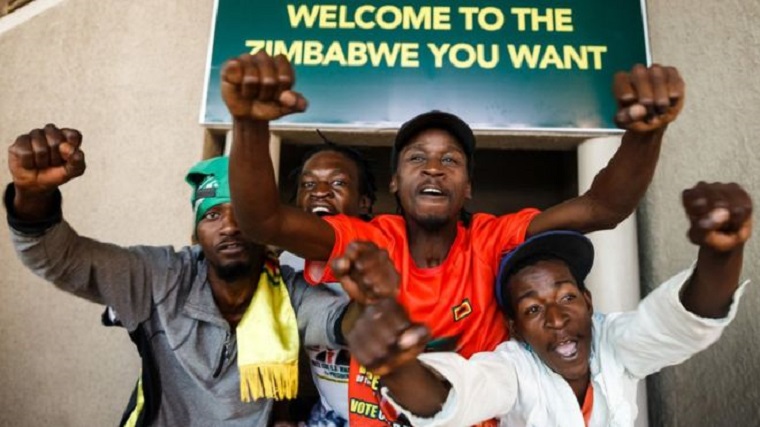 “Zimbabwe is on fire,” wrote Joyce last month via the popular messaging service WhatsApp.
“Zimbabwe is on fire,” wrote Joyce last month via the popular messaging service WhatsApp.
Joyce, a colleague and friend, is one of nearly 8 million low-income and poor women struggling to survive Zimbabwe’s current economic and political crises.
Her comment comes after weeks of market turmoil, panic buying, fuel and food shortages, widespread uncertainty, and currency fluctuations that in one day saw the value of the Zimbabwe Bond Note to the U.S. dollar shift from 1:8.00 in the morning to 1:1.5 by evening.
The country’s mood is a far cry from the euphoria that followed the army’s November 2017 removal of President Robert Mugabe, freedom fighter turned autocrat.
That day and the weeks following, citizens celebrated an end to Mugabe’s 37-year rule, which included the country’s metamorphosis from settler colonialism and white minority rule to a majority-run Zimbabwe government.
But after decades of mismanagement, Zimbabwe — once an economic powerhouse and a leading moral authority in southern Africa — is now an economic basket case.
Today, President Emmerson Mnangagwa, victor of the July 2018 national elections, has struggled to rebuild the atrophied muscles of political tolerance, transparency, and accountability, and has yet to rediscover the pro-poor and working-class principles that once made Zimbabwe’s independence movement so strong.
To the new government’s credit, it has created a few openings in the formerly closed political space.
In the run-up to the election, the country was largely violence-free, and the vote was observed by thousands of domestic, regional, and international observers.
The High Court has ruled sections of the draconian Public Order and Security Act, which limited freedom of association, unconstitutional.
In addition, Mnangagwa’s public declaration of “zero tolerance” for corruption includes new structures: the establishment of special anti-corruption courts, an anti-corruption prosecution unit, and the Public Entities Corporate Governance Act, along with the arrest of several high-profile individuals.
Still, while the ruling party is publicly targeting some of the bad actors, it hasn’t shown an interest in tackling the deep-seated internal corruption that’s linked to global corporate and financial actors, who are guilty of siphoning billions from Zimbabwe through illicit means.
Continued next page
(190 VIEWS)


